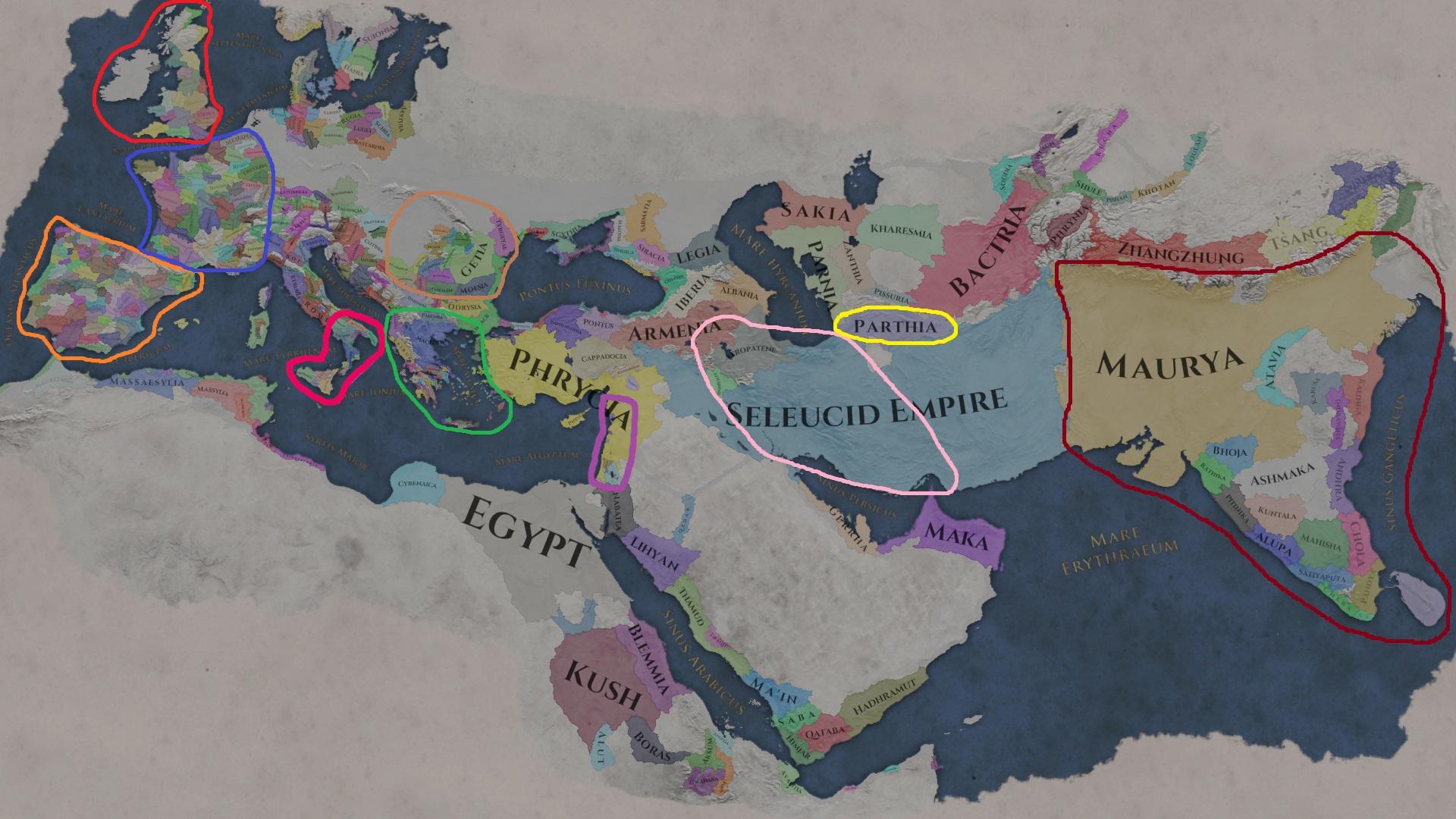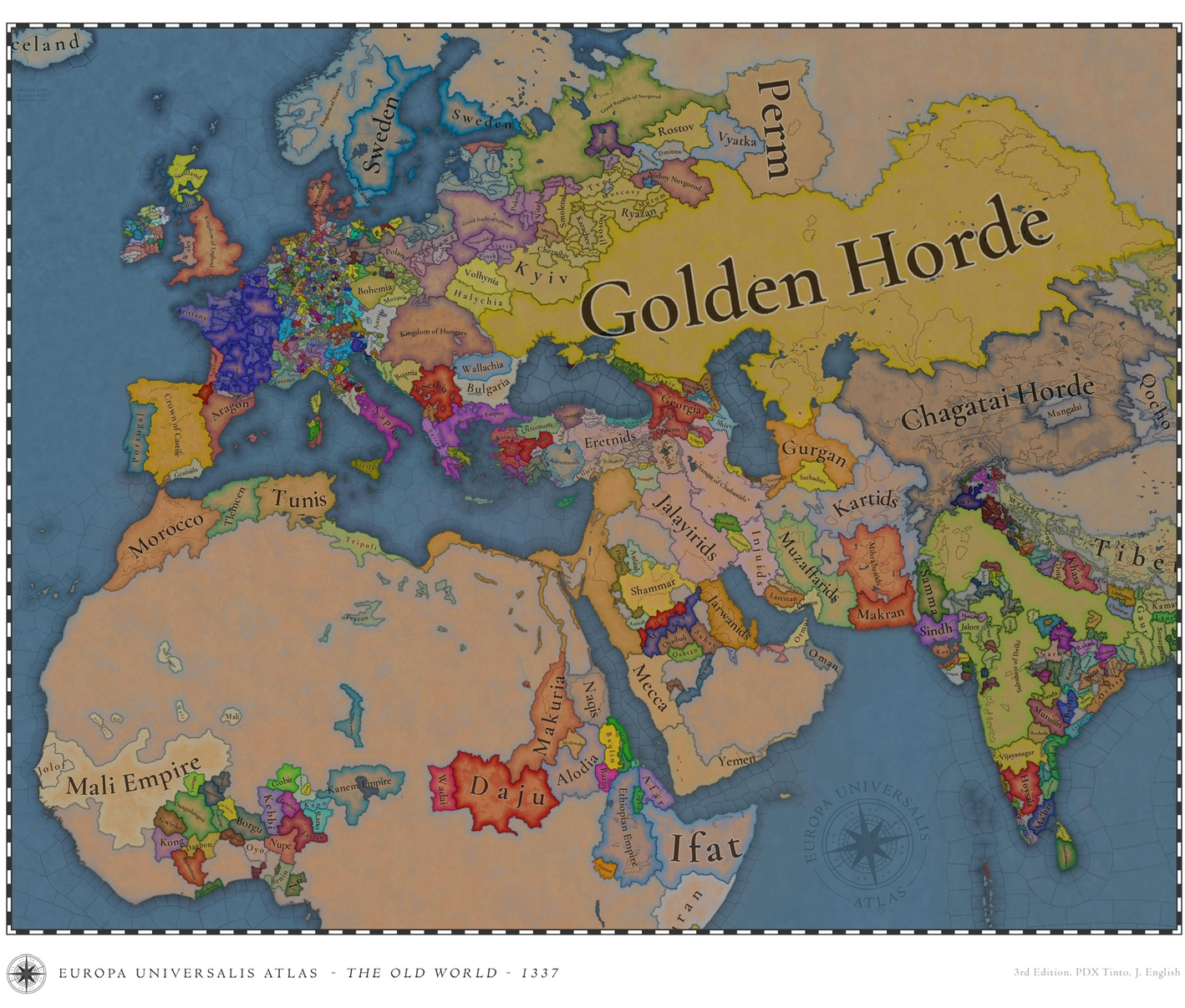Johan once summed up the reason IR failed as "lack of content."
I think this perception is wrong.
The real reason IR failed is that "AI cannot create a world map like the historical one."
In other words, we were disappointed that AI Rome did not conquer the Mediterranean world.
We must not repeat this mistake with Caesar.
In other words,
・AI Ottoman must expand into the Eastern Mediterranean.
・AI Britain, AI France, AI Spain, and AI Portugal must create colonies all over the world.
・In the first place, AI Spain must be established with a probability of more than 80%.
・AI Persia and AI Mughal must be established.
・It is desirable for AI China to be unified by some force.
・Of course, there may be times when AI China and AI India are split, but that should not be the case all the time.
We want a solid AI nation to grow, not a world divided into small pieces.
I think this perception is wrong.
The real reason IR failed is that "AI cannot create a world map like the historical one."
In other words, we were disappointed that AI Rome did not conquer the Mediterranean world.
We must not repeat this mistake with Caesar.
In other words,
・AI Ottoman must expand into the Eastern Mediterranean.
・AI Britain, AI France, AI Spain, and AI Portugal must create colonies all over the world.
・In the first place, AI Spain must be established with a probability of more than 80%.
・AI Persia and AI Mughal must be established.
・It is desirable for AI China to be unified by some force.
・Of course, there may be times when AI China and AI India are split, but that should not be the case all the time.
We want a solid AI nation to grow, not a world divided into small pieces.
- 86
- 19
- 6
- 3
- 1



